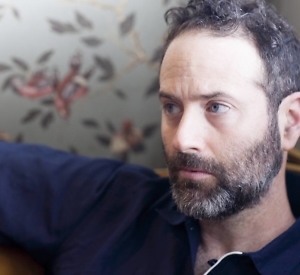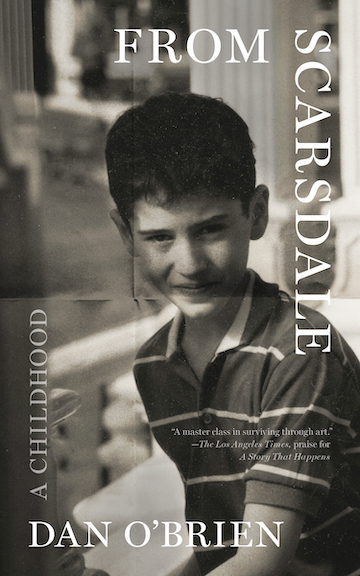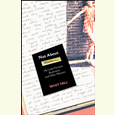An Old-Time Progressive Revival
Former NEA chairman Bill Ivey looks to the past for a roadmap to the future
A single word dominated President Barack Obama’s 2012 campaign: “Forward.” Emblazoned on bumper stickers, yard signs, bill boards, podiums, social media—even Katy Perry’s dress—Forward implied a sense of progress. In the wake of a near economic catastrophe, it symbolized hope for a new direction. Although a majority of Americans endorsed the president’s vision with their votes, the country remains polarized, and the way forward seems elusive. In Handmaking America: A Back-to-Basics Pathway to a Revitalized American Democracy, Nashville author Bill Ivey uncovers and explores the roots of progressive values to help guide us down that path.
Twelve years into a new century, the U.S. is coming to grips with some hard truths: credit is finite, and our houses aren’t ATMs. We are less satisfied with our work, yet we work more and earn less. We are bombarded by advertisements and “news” that often obscures the facts. And our schools are training students for twenty-first-century jobs that may be outsourced overseas anyway. All in all, it’s a bleak picture, but Bill Ivey—writer, teacher, former chairman of the National Endowment for the Arts, principal in Global Cultural Strategies, and trustee of the Center for American Progress—believes we have the tools to create a post-consumerist society. Handmaking America: A Back-to-Basics Pathway to a Revitalized American Democracy outlines an ambitious vision for a new era. Ivey recently answered questions from Chapter 16 via email:
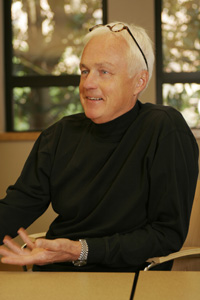 Chapter 16: People often look to the New Deal or the Great Society for a blueprint of progressive values and ideas, but you went back to the roots of progressive thought, specifically the Arts & Crafts movement. What led you there?
Chapter 16: People often look to the New Deal or the Great Society for a blueprint of progressive values and ideas, but you went back to the roots of progressive thought, specifically the Arts & Crafts movement. What led you there?
Bill Ivey: I believe the changes now underway in American society, and to an extent in societies around the world, are more profound than those set off by the Great Depression or the social justice challenges taken on by the Great Society. Technology, the globalization of labor, and the ambition of modern-day market economies have combined to trigger social effects not seen since the Industrial Revolution transformed the character of work and community life in the late nineteenth century. Back then, public intellectuals like Karl Marx, John Ruskin, and William Morris advanced broad critiques of the impact of industrial production on society, but today we haven’t yet witnessed a similar pushback against our current version of modernity.
When American wages compete with those in third-world countries, when technology-enabled labor generates more output in fewer hours, and when smartphones and the Internet force white-collar workers to connect with the office 24/7, the character of change in American society is deep and permanent. The Great Depression and Great Society each produced important, lasting public policies, but today we need more than smart programs; we need to recommit to who we are and what we believe. I think the anti-modernists of the nineteenth century can be both inspiring and instructive as America confronts a fundamentally transformed reality, and I believe the Arts & Crafts movement is the best place to begin the argument of Handmaking America.
Chapter 16: As we’re now living in a post-consumerist society, you suggest the need for a renewed commitment to a revitalized American idea of “a strong value space.” What do you mean by that?
Ivey: Public policies in health care, regulation of Wall Street and corporations, national defense, and education (the “what” of government and society) are ultimately grounded in shared values (the “why” of what we do). For more than thirty years we have lived the conservative why: government is the problem; taxation is an unnecessary, unreasonable burden; security requires continual war. Since the dawn of the Reagan/Thatcher era, the Right has filled America’s value space with this mantra: “We will keep you safe; we will keep Uncle Sam off your back; we will keep Washington out of your wallet.”
Liberals need to refill America’s value space, and here’s where I would start: “You are not alone; you can live with purpose through work, family, and community; America is still a Beacon on a Hill.”
The financial collapse of 2008 and the election of 2012 signaled the failure of this vision. But progressives have grown timid; we talk policy (health care; immigration) without advancing an alternative “why.” Liberals need to refill America’s value space, and here’s where I would start: “You are not alone; you can live with purpose through work, family, and community; America is still a Beacon on a Hill; we owe it to each other.” Each of these assertions can justify and support a number of important, innovative policies. This is what a progressive value space looks like, and our liberal rendition of the American Idea will only gain importance as Americans come to realize that the debt-enabled spending of the early twenty-first century is not coming back. We need a value space that will support a new vision, one grounded in quality of life and not just quantity of stuff.
Chapter 16: Why are we less satisfied with and losing a sense of craftsmanship in our work?
Ivey: The production line represents a perpetual, capitalist ideal. It offers efficiency, consistency, and control, so markets and corporations always seek the comfort of piecework labor. Arts & Crafts critics—comparing the character of craftwork in, say, building a carriage wheel from scratch with the repetitious movements of bolt-tightening on an assembly line—correctly observed that the satisfaction derived from problem solving, personal control, and mastery of complex tasks was extracted from work once it was split into tiny discreet components.
For years, fields like medicine, law, accounting, and education were immune from the production line. However, today, technology has enabled craftwork like medicine to be reduced to repetitious keystrokes or clicks on menus defined by experts and software engineers. A doctor who treats a patient by clicking options on a tablet computer has much in common with the factory worker—creativity, control, problem-solving are outsourced. Today we are less satisfied by work because technology has enabled employers to reshape almost every job into a version of assembly-line piecework. Labor carried out in tiny cubicles (square footage per office worker has steadily declined) and the subtle manipulation at the heart of management-imposed “teamwork” only exacerbate the deadening effect of twenty-first-century labor.
Chapter 16: A four-day work week is among the reforms you propose. Why? (And do you have a petition I can sign?)
Ivey: Wages have been stagnant for a decade, and productivity is at an all-time high. High productivity simply means fewer hours at lower pay for hourly workers, and longer hours (smartphone- enabled) for salaried employees. This is great for investors, as getting more output for less pay simply sends dollars to the top. A four-day work week without reduced pay would attack productivity, moving more money to more workers and less money to the investor class. Further, an extra day provides an opportunity for citizens to craft a high quality of life. New free space will enable engagement with art, politics, community volunteering, learning, and family can restore a sense of well-being and accomplishment—real quality of life—that is not grounded in spending (often borrowed) money. Productivity is high because labor now competes globally, and because unions have lost power. It is unlikely that we will get the productivity number down, distributing the fruits of labor more equitably, without some conflict and distress. But as work itself fades as an arena of personal achievement, time away from the job will become more and more important.
Chapter 16: Speaking of petitions, as a nation we are shifting from representative government toward direct democracy: governance according to polls, petitions, and referendums. As you note, this change is the result, in part, of an unregulated media machine, as well as a twenty-four-hour news cycle in need of something to hype. Are we capable of putting that genie back in the bottle? Should we?
Media will not be tamed, but as citizens we can be trained to resist.
Ivey: I think it will be very, very difficult to tame the media machine. After all, pundits and news editors stand between Americans and our understanding of political reality. It was no surprise to me that within ten days of our 2012 presidential election, there was intense speculation about Hillary Clinton, Jeb Bush, and others who might or might not run in 2016. The pseudo-information captured in polls will soon begin to provide fodder for daily speculation, and members of Congress will be first chastised for decision making grounded in excessive political calculation but then immediately blamed if a principled vote puts the next primary at risk. TV loves and needs this stuff, and the best we can do is educate Americans in a “new civics” that enables us to see through the manipulation. I was mildly encouraged by some of what happened in November: advertising was less effective than assumed; money ultimately less influential than feared; and voters—on issues like gay marriage or marijuana policy—proved themselves capable of shifting to the left in ways no one—absolutely no one—predicted.
So, media will not be tamed, but as citizens we can be trained to resist. And this same new civics can help deflect the allure of referenda or “propositions.” Again, in November, Americans said “No” to a number of ballot initiatives. This was encouraging.
Chapter 16: For the last thirty years, educational reforms have emphasized math and science, usually at the expense of the arts and humanities. Though that argument has become conventional wisdom, you’re proposing less math and science in order to teach students to be good citizens and creative thinkers. Which disciplines are best suited to promote those goals?
Ivey: In late November, TV host/pundit Joe Scarborough riffed on the difficulty he had passing math and science courses in college. His narrative produced plenty of nodding heads. Why smart people who trained in history, sociology, philosophy, folklore, and political science, and who have perfectly good if not outstanding careers, should suddenly decide every young person should be a pre-engineer or pre-mathematician is beyond me. About thirty years ago we let the world of business put its nose into the tent of education. “What do you want?” we asked. They’re now in the tent and given us the answer: workers with modest reading and technical skills who are capable of modern-day piecework, who passively accept the manipulations and slights of today’s workplace, and who will take their (increasingly modest) paychecks and buy what advertising tells them they need while voting for a government that protects corporate prerogatives.
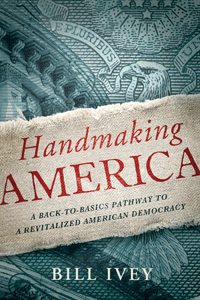 Yes, the marketplace wants engineers, but it also doesn’t want homegrown social and political critics who possess the knowledge of history and society, and who deploy skills required to interpret and deflect spurious news and manipulative advertising. History allows us to see people struggling with life decisions in many different contexts; literature elevates key components of the human experience; philosophy teaches values deeper than fashion; psychology arms us with an understanding of hidden impulses and motivations; political science teaches…well, I could go on. Further, training in the arts—in music-making, writing, acting, and dance—gives citizens a set of tools capable of generating a high quality of life, even (heaven forbid!) without wealth.
Yes, the marketplace wants engineers, but it also doesn’t want homegrown social and political critics who possess the knowledge of history and society, and who deploy skills required to interpret and deflect spurious news and manipulative advertising. History allows us to see people struggling with life decisions in many different contexts; literature elevates key components of the human experience; philosophy teaches values deeper than fashion; psychology arms us with an understanding of hidden impulses and motivations; political science teaches…well, I could go on. Further, training in the arts—in music-making, writing, acting, and dance—gives citizens a set of tools capable of generating a high quality of life, even (heaven forbid!) without wealth.
Chapter 16: Even among arts organizations, the current trend is to focus on the economic contribution of the arts (jobs, tourism) as much as, if not more than, the value the arts add to our expressive lives. Will it ever be possible to reclaim recognition of their intrinsic value?
Ivey: This is a good question and goes to the way in which “Handmaking America” tries to outline a more fundamental sense of the value of art—a vibrant expressive life—as a public good. If economic realities are forcing us to abandon the false dream of happiness through consuming, what is the alternative? I believe that training in the arts connects citizens with cultural heritage and community while handing individuals the basic ingredients of a post-consumerist high quality of life.
The arts are a realm of personal distinction and achievement—an arena of creative practice that is not especially costly and can be available from childhood through old age. If we ask, “How do we best offer citizens a connection to cultural heritage and an affordable path to personal accomplishment?” the arts are the answer. At the end of the day, arts advocacy will never win on economic impact—we offer millions, and a sports team or auto plant promises billions. It’s a zero-sum game we can’t win. But the arts can play an intrinsic role in our liberal vision for a vibrant, twenty-first-century democratic society. Handmaking America” is about government, work, technology, education, and happiness—but in many ways it’s really my “back-door” attempt to mount a fresh argument on behalf of the intrinsic value of art and art-making: the value of a vibrant expressive life.
Chapter 16: Handmaking America outlines several public policy, occupational, and education reforms toward a new progressive vision for the good of all. But as you point out, government can’t do it alone. People have to take part themselves. Where does the average citizen begin?
Ivey: I know I break with some of my progressive cohort when I emphasize the importance of personal responsibility. We can only jump from the treadmill of consumerism if we engage the manipulative power of present-day advertising. Is an iPhone 6 or 7 or 8 really better? Do we really need (the big-push item this shopping season) a device we buy in order to make carbonated soda at home? I mean, really?
Do we want our kids to be creative and independent or do we want childhood to be always risk-free? Do we want great teachers or do we want classroom clerks who do nothing but generate high standardized-test scores? These Orwellian, “double-think” ideas are in play, and citizens ultimately must choose. If we exercise a reasonable degree of insight in a responsible fashion, we can—as individuals—begin the process of revitalizing our society and our democracy.
Once individuals act responsibly, government can come forward as an important instrument that enables us to accomplish big, important things together. But if it’s all about a bigger car, bigger house, or more-elaborate holiday funded with a bank loan or credit card, or if we whine about the failure of teachers while letting our children text their way through dinner on their way to an evening managing Facebook friends, then nothing government might try will work. It can’t, at the end of the day, save us from ourselves.


